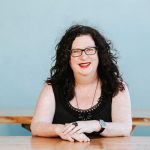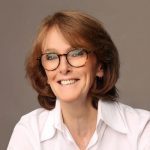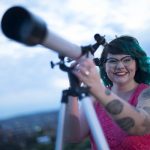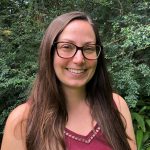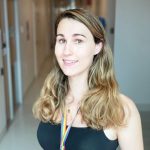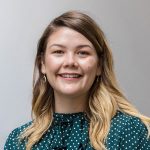Celebrating Women and Girls in Science
Celebrating International Day of Women and Girls in Science
Throughout history, women in science have changed our world. From how we treat illness, generate power, communicate and eat, through to how we explore our solar system. Women have been behind some of the greatest scientific and engineering discoveries of all time.
Female scientists have broken more than just the sound barrier, they’ve broken gender barriers. At World Science Festival Brisbane, we recognise the major contributions women have made in research and innovation.
In celebration of International Day of Women and Girls in Science, we’ve compiled a list of a few of our favourite scientific heroes you can hear—and learn from—as part of our 2022 program.
Dr Alice Gorman | Space Archaeologist
Dr Alice Gorman is an internationally recognised space archaeologist and author of the award-winning book Dr Space Junk vs the Universe: Archaeology and the Future. She is an Associate Professor at Flinders University in Adelaide and a heritage consultant with over 25 years’ experience working with Indigenous communities in Australia. In 2021, asteroid 551014 Gorman was named after her in recognition of her work in establishing space archaeology as a field.
Dr Cathy Foley AO PSM | Australia’s Chief Scientist | Physicist
Dr Cathy Foley AO PSM commenced as Australia’s ninth Chief Scientist in January 2021 after an extensive career at Australia’s national science agency, the CSIRO. Dr Foley is an inspiration to women in STEM across the globe and is committed to tackling gender equality and diversity in the science sector to embrace the full human potential of all.
Karlie Noon | Astronomer and PhD Candidate
Karlie Alinta Noon is a Gamilaraay astronomer and science communicator promoting Indigenous astronomical knowledge systems and advocating for more women in STEM. Karlie is the first female, Indigenous Australian to graduate with combined degrees in mathematics and science. She has an advanced Master’s of Astronomy and Astrophysics and is currently undertaking a Ph.D. in astrophysics.
Federica Sbordone | PhD Student| Queensland University of Technology
Federica Sbordone received her B.Sc. in Biotechnology in 2018 and M.Sc. in Pharmaceutical Biotechnologies in 2020 from the University of Naples Federico II, Italy. In the same year, she joined the team of Dr. H. Frisch at QUT as a doctoral researcher developing peptide-based macromolecular architectures.
Dr Kimberly Finlayson | Marine Biologist and Ecotoxicologist | Griffith University
Kimberly Finlayson is a marine biologist and ecotoxicologist, with expertise in sea turtles. She has worked with sea turtles for many years, investigating how chemical contaminants effect various aspects of their ecology and biology. Kimberly’s work focuses on establishing ethical alternatives to assess the effects of chemical contaminants in threatened wildlife like sea turtles using cell-based techniques.
Dr Alison Wright | Neurobiologist and Advocate for LGBT individuals in STEM
Alison is a transgender Neurobiologist working at the Clem Jones Center for Neurobiology and Stem Cell Research looking at stem cells and glia within the nose and how they can be used to treat spinal cord injury. She’s spent time working in overseas in Denmark and Germany and has recently come home to continue her work with the Spinal Injury project at Griffith University. As a prominent transgender scientist she has been involved in outreach and advocacy trying to bring attention to LGBT individuals in STEM.
Dr Samantha Nixon | Venoms’ Scientist | The University of Queensland
Samantha is a former arachnophobe, turned venoms’ scientist and spider advocate at the Institute for Molecular Bioscience, The University of Queensland. She is a passionate advocate for addressing inequality in STEM, education and leadership through science communication and hopes sharing her passion for spiders will help inspire the next-generation of Australian scientists.
Professor Tamara Davis | Astrophysicist | The University of Queensland
Astrophysicist Tamara Davis studies the elusive “dark energy” that’s accelerating the universe. She’s measured time-dilation in distant supernovae, helped make one of the largest maps of the galaxies in the universe, and is now measuring how supermassive black holes have grown over the last 12 billion years. Her accolades include the Australian Academy of Science’s Nancy Millis Medal for outstanding female scientific leadership, and an Order of Australia (AM) for significant service to astrophysical science, education, and young astronomers.
For the full program visit our events page. What will you discover at World Science Festival Brisbane?
Follow us
Stay up to date with the latest news, program announcements and more by following us on our social media.


